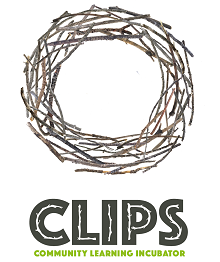Project Management, Delegation of Work and Task Assignment
A transparent and participatory project management process is recommended to organise internal work in a fruitful way. This is especially helpful in the early stages, when a great number of decisions and actions need to happen to transform the project from dream to reality, and make things move along. This may happen in a series of steps that are interlinked and may be repeated if necessary. The steps could be:
- Assessment of resources: Running an internal survey of competences, professions and personal desires creates the basis for an evaluation of the group’s potential. It is important that each person honestly tells the group what he or she is able to do, but also what he or she really burns for and wants to develop in the future, even though this may request training and practice. This process should include all group members, and can be repeated from time to time to check if the wish lists have been fulfilled or not.
- Assessments of urgencies: A committee can be appointed to draw a list of objectives that need to be reached in a given time frame (typically short – mid – and long term) based on the vision, mission and strategic goals that the group has previously elaborated. A list of tasks related to the objectives brings the discussion to an even more practical level and opens the way for the next phase.
- Matching abilities, desires and needs: The group can now compare the two lists and see if the members feel naturally attracted to one or more tasks, either individually or as a sub-group. This elaboration can take the form of an open discussion, a game, or a constellation, and should bridge the two levels (what I can do – what I want to do) in a way that is satisfactory for both the individual and the collective. Forming working groups with experts and assistants is a classic peer-to-peer learning tool, and creates community bonds while responding to project needs.
- Accounting and balancing the work: Another delicate phase opens with the question: who should be paid for what? A large share of voluntary work is normal at the beginning, but cannot last forever. Some groups decided that all work done by group members is paid the same rate, no matter what it is, be it farming, building, cooking or accounting. Some groups decided to differentiate between agreed limits, while others refer to market prices and pay according the competence. There is no right or wrong. It’s a very interesting discussion at the heart of the group beliefs, and reflects the socio-political stance that the community is willing to support.
- Outsourcing: After going through the above phases, organisers may very well find out the some core competences are not covered by internal resources.
At this point, they may need to outsource according to mutually-agreed-upon criteria to avoid nepotism and personal favours. Having a circle of community supporters will enlarge the available resources and the number of potential candidates, often available on a voluntary basis. Many mainstream people who don’t have the possibility to join a community full time are normally quite happy to participate as “honorary” members and give a factual contribution to a project. Bring them in, honour and thank them, and build as many bridges as possible with all the potential supporters out there. It will not only answer the need, but also expands the culture of solidarity and sharing around the group.
From time to time, the committee should call a meeting to revise the advancement of work, the level of satisfaction of members and efficiency of the process. A level of shift and change within working groups is not only normal, but also advisable and healthy, as long as the roles are clear and the tasks are met. Sociocracy offers a very intelligent model to set up an efficient and dynamic structure that optimizes competencies, results and communication.
Finding the right place in the group is at the core of personal well-being and satisfaction. Individual happiness paves the way for long-lasting communities, living laboratories for personal evolution.

